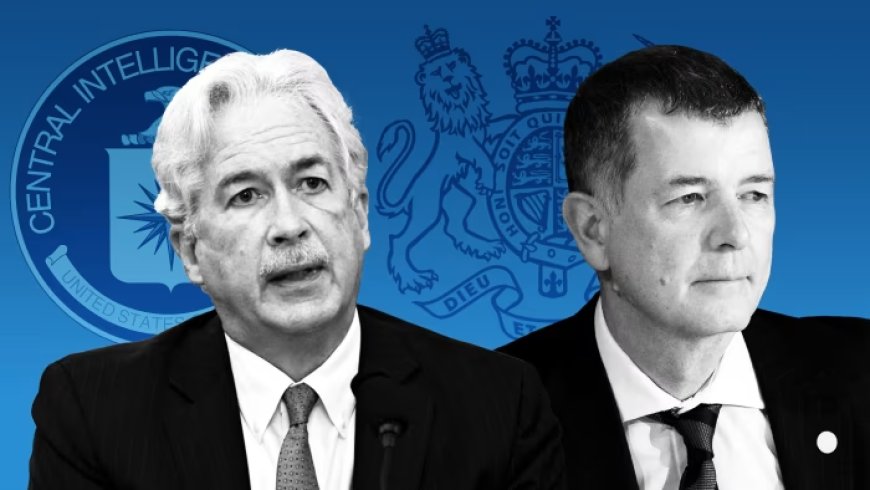Bill Burns and Richard Moore: Intelligence partnership helps the US and UK stay ahead in an uncertain world

1. Technological advantage is key to ensuring the special relationship maintains its lead
Please use the sharing tools provided via the share button at the top or side of articles. Copying articles for redistribution violates FT.com’s Terms & Conditions and Copyright Policy. For additional rights, email licensing@ft.com. Subscribers can share up to 10 or 20 articles per month using the gift article feature. For more details, visit [FT Tour](https://www.ft.com/tour).
---
Bill Burns, Director of the US Central Intelligence Agency, and Richard Moore, Chief of the UK Secret Intelligence Service, reflect on the enduring alliance between their agencies. This year marks the 75th anniversary of the CIA, but the bond between US and UK intelligence dates back to the founding of the SIS in 1909.
The collaboration between the two agencies has been crucial through global conflicts and has evolved to address new threats. Today, as they face the challenges of an increasingly complex world, their partnership is pivotal in responding to the aggressive actions of Russia and the rising influence of China.
In Ukraine, both agencies have supported efforts to counter Russia’s aggression, leveraging technology and intelligence to aid the Ukrainian resistance. The conflict has showcased the integration of advanced technology in warfare, including AI and cyber capabilities.
Beyond Ukraine, the CIA and SIS continue to tackle other global threats, from disrupting Russian sabotage across Europe to addressing the rise of China and counterterrorism. Their joint efforts also focus on Middle Eastern issues, including negotiations for a ceasefire in Gaza.
Maintaining a technological edge is crucial, and the agencies are enhancing their capabilities through AI and cloud technologies, partnering with innovative companies worldwide.
The strength of their partnership lies in shared values, trust, and a commitment to global peace and security. As they navigate the complexities of the 21st century, their collaboration remains a cornerstone of international stability.

















































